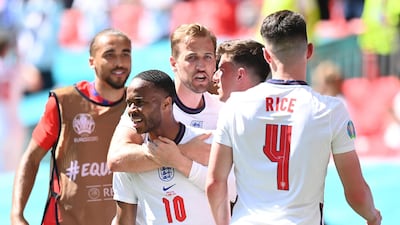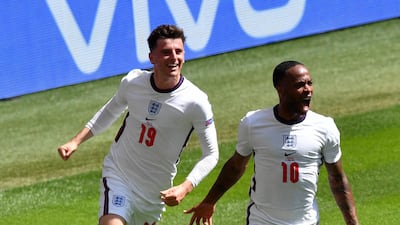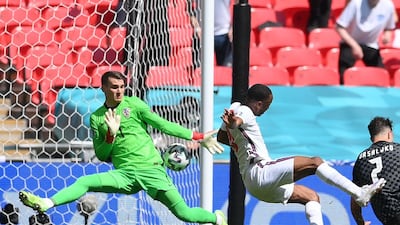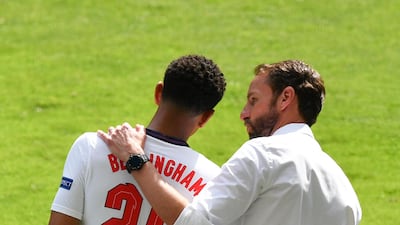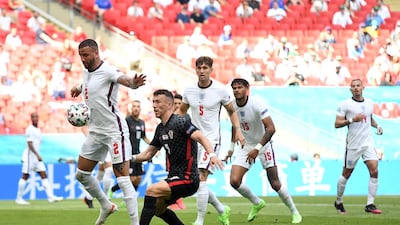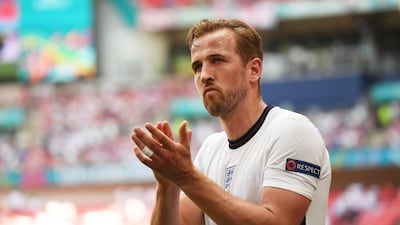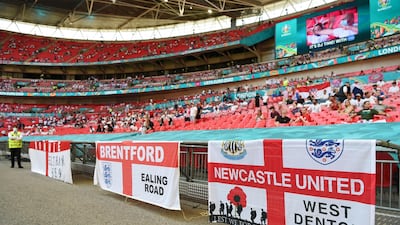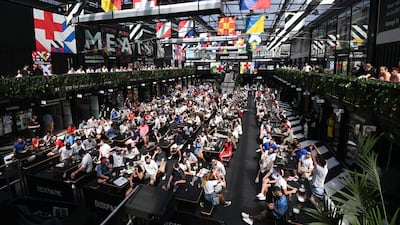Scotland seldom leave Wembley without some sort of souvenir. Back in a phase of their long rivalry with England when the Scots had the superior side, mementos were seized aggressively by travelling fans.
In 1977, a 2-1 Scottish win in London set off a pitch invasion in which a lot of turf was excavated and pieces of crossbar destroyed.
Nowadays, England and Scotland meet only as frequently as the natural qualifying fixture list allows. But the sting of international football’s oldest match-up, dating from 1872, has not been drawn. While this evening’s meeting at Euro 2020 must be played, because of public health protocols, to a limited-capacity Wembley, there will be plenty of noise.
There will be elements of envy behind it, too, and although the bigger nation, England, aspire to winning this European championship and the smaller one, Scotland simply to clambering into the next round, not all of the envy goes in one direction.
England manager, Gareth Southgate, would love to have a left-back as reliable and precise in his crossing as Andy Robertson, the Scotland captain.
England began the tournament with Kieran Trippier, right footed and far more seasoned on the opposite side of the defence, in that position. Were Kieran Tierney, of Arsenal, an Englishman rather than a Scot, he would likely command a place on the left of England’s defence.
The frustration for Steve Clarke, the Scotland manager, is that arguably his two most gifted footballers, Tierney and Robertson, occupy the same role.
His more immediate frustration is that just as he had found a functional solution to that concentration of riches, with both playing in 3-5-2, Tierney sustained a thigh injury that may keep him out of the starting XI at Wembley tonight.
Southgate picks his team mostly from players in the wealthiest domestic league in the world, the English Premier League. If he chose to, he could pick his outfield 10 for today entirely from players who took part in the knockout phase of the last Champions League.
Scotland 0 Czech Republic 2: player ratings
Here’s the key difference. Clarke has just two players in that category, Liverpool’s Robertson, and the still raw 20-year-old Chelsea midfielder Billy Gilmour.
They represent a country with little over a tenth of England’s population and the distinction is reflected in the Fifa rankings, where England sit fourth, Scotland 44th.
The stakes today for the Scots, taking part in their first major tournament since the World of 1998, have heightened in the last four days, since their opening Group D defeat to the Czech Republic, a 2-0 reverse that embarrassed their goalkeeper David Marshall, beaten by a 50-metre shot from Patrik Schick, and did little to soothe concerns about Scotland’s difficulties in finding a reliable finisher.
Clarke is under pressure to give a starting place to Southampton forward Che Adams, who has been a lively addition to his plans since committing his international career to the Scots.
Adams was born in England, and less than six years ago was playing for the England under-20s alongside Ben Chilwell, who is part of Southgate’s squad.
England have not had too many goals from their main striker, recently, although concern about Harry Kane’s form – two goals from his last 10 internationals – is muted. “The question marks around him are background noise,” insisted the England defender Tyrone Mings.
The Scots fully expect Kane to lead England at Wembley. The sight of him will be alarming. Kane features on the long list of those who have thwarted Scottish ambitions.
In his first match as England captain, in 2017, Kane scored a stoppage time equaliser against Scotland in a World Cup qualifier that effectively kept Scotland out of a possible play-off.
It was the most recent in a series of England-inflicted setbacks. There was the tantalising Scotland-England play-off duel for Euro 2000, when the Scots won at Wembley, but only by a single goal. They needed another to take the tie to extra time.
There was Euro 96, when, just as in the current tournament, Scotland faced England in London in the group stage. They had a penalty saved when they were 1-0 down. England doubled the lead with a sensational solo goal from Paul Gascoigne, then of Glasgow Rangers.
Southgate played for England in that match, and again in the Scottish win in London in the 1999 play-off. That night the Scots identified Southgate as the point of vulnerability in the English defence.
A generation on, Southgate has built up a tough suit of armour as a manager and an England team well prepared for any ambush that the underdog Scots try to spring on them.
